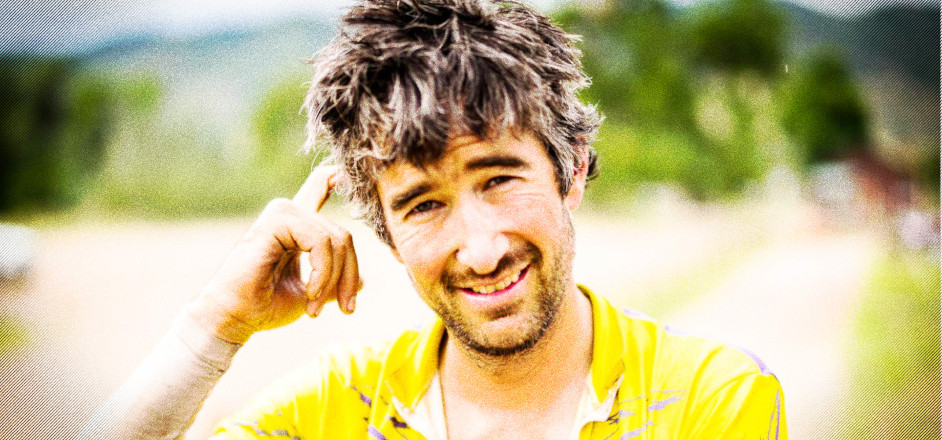Why do it? Why race a mountain bike, loaded with camping gear and food, over singletrack trails, 3,000 miles from Canada to Mexico, in the Tour Divide mountain bike race?
Why be a professional bikepacker at all? Why ride 80 to 140 miles a day over singletrack trails, set up camp, sleep four hours, then do it again? Not much prize money, huge costs. Massive pain, little sleep. No fame, few sponsorships.
Yet a guy like Justin DuBois, one of the few people billed as a professional bikepacker, pours his heart, time, wallet, and the goodwill he's earned from his wife into one of the most insane, body-breaking, spirit-testing long-distance endurance feats in modern sport.
"You kind of have to have a screw loose to do this," DuBois says.
DuBois, 39, from Estes Park, Colorado, packs weeks worth of camping gear onto a bike, and trudges that 40-45 pound rig up monstrous hills for days or weeks. He'll often ride 16 hours a day, sleeping for four or five. He eats every single thing he can get his hands on — 4000 calories isn't nearly enough.
Hour after hour. Day after day. Night after night. Eighteen days, in the case of the Canada to Mexico race.
He's not the best out there. The best sleep only two hours a night. But he finished third in a race from the top of Colorado to the bottom. Not bad.
He has some help: a vape pen with 1:1 THC and CBD that puts DuBois in an Irie mood and soothes his fatigue. He'll go through a 500 mg cartridge in a day and a half. Which is a lot of weed. With a vape pen, he can load up while riding.
In fact, a vape cartridge is almost as necessary to him as water. Once, during the Tour Divide race, he ditched his weed as he approached the Canada / U.S. border. Without weed, he had to practically go door-to-door in Montana, looking for a buddy with a connection. (He found one.)
So, yes he rode almost the entire route high.

So … why do the professional bikepacking slog? Why would anyone? Do these bikepackers have a screw loose?
Some of the riders, DuBois says, are athletic competitors of the classic sort. But there's more to it than that.
"There's definitely the athlete kind of side of things," DuBois says, "but it's less jock-y and more odyssey."
Many of the riders, Dubois says, are seekers.
They want something, DuBois says. To feel. Discover their true nature. Test themselves.
In DuBois's case, freedom.
"When I have a week ahead of me, and a trail, and all the shit I need on my bike, I feel — rich," he says, searching for the right word. "Literally that's wealth to me."
He may have to worry about finding the next turn, and about securing water and more food, and pushing his heavy-ass bike around, but he's not weighed down by the normal responsibilities, worries about his job (his family owns real estate and a restaurant in Estes Park), or money or social status. There's just the trail. And the hours and miles melt away. It helps that he's stoned.
"Some days, (on the trail) I feel like I could do this for the rest of my life," DuBois says.
Bikepacking is one of those sports, like climbing and kayaking, that's resisted monetizing, commercializing. It's a haven for recluses to disappear into the folds of the mountains like lint into a couch cushion. DuBois has turned down sponsorship deals from most companies, because he doesn't want to feel controlled. The only thing he's sponsored for is weed.




Leave a Reply